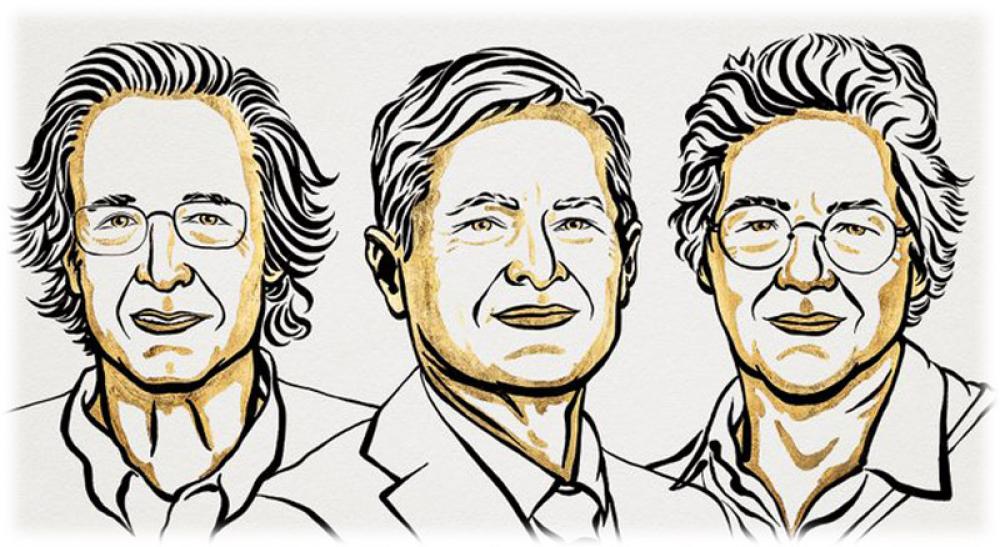Just Earth News | @justearthnews | 03 Oct 2023, 05:04 am Print
 Nobel Prize
Nobel Prize Photo Courtesy: The Nobel Prize X Page
Pierre Agostini, Ferenc Krausz and Anne L’Huillier will get the Nobel Prize in Physics for their experiments, which have given humanity new tools for exploring the world of electrons inside atoms and molecules.
The trio have demonstrated a way to create extremely short pulses of light that can be used to measure the rapid processes in which electrons move or change energy.
BREAKING NEWS
— The Nobel Prize (@NobelPrize) October 3, 2023
The Royal Swedish Academy of Sciences has decided to award the 2023 #NobelPrize in Physics to Pierre Agostini, Ferenc Krausz and Anne L’Huillier “for experimental methods that generate attosecond pulses of light for the study of electron dynamics in matter.” pic.twitter.com/6sPjl1FFzv
Fast-moving events flow into each other when perceived by humans, just like a film that consists of still images is perceived as continual movement.
"If we want to investigate really brief events, we need special technology. In the world of electrons, changes occur in a few tenths of an attosecond – an attosecond is so short that there are as many in one second as there have been seconds since the birth of the universe," read a statement issued by The Royal Swedish Academy of Sciences.
The laureates’ experiments have produced pulses of light so short that they are measured in attoseconds, thus demonstrating that these pulses can be used to provide images of processes inside atoms and molecules.
In 2001, Pierre Agostini succeeded in producing and investigating a series of consecutive light pulses, in which each pulse lasted just 250 attoseconds. At the same time, Ferenc Krausz was working with another type of experiment, one that made it possible to isolate a single light pulse that lasted 650 attoseconds.
The laureates’ contributions have enabled the investigation of processes that are so rapid they were previously impossible to follow.
“We can now open the door to the world of electrons. Attosecond physics gives us the opportunity to understand mechanisms that are governed by electrons. The next step will be utilising them,” says Eva Olsson, Chair of the Nobel Committee for Physics.
- United Kingdom launches eVisa for Indian visitors starting today — Here’s what travellers need to know
- Abandoned at birth, Punch the macaque finds global love as crowds flock to Tokyo zoo
- YouTube Premium Lite just got a massive boost — Know all details
- Trump claims he stopped 35 million deaths by stopping India-Pakistan war
- Entrepreneur decides to shut down 16-year old eatery in London, cites harassment and Pakistani attacks





-1763561110.jpg)
